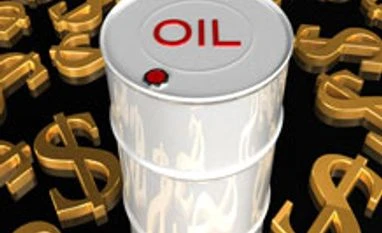OPEC ministers gather today for an eagerly awaited meeting which is widely expected to leave its output levels unchanged, despite the recent oil price collapse and global oversupply.
The Organization of the Petroleum Exporting Countries (OPEC), which accounts for a third of the world's oil supplies, will likely pursue its plan to preserve market share and pressure high-cost US shale producers.
OPEC switched strategy last November when it opted to leave its official collective production target at 30 million barrels per day -- where it has stood for three and a half years -- despite an oil price slump that slashed precious revenues for its 12 member nations.
Cartel kingpin Saudi Arabia's powerful Oil Minister Ali al-Naimi kicked off this week by declaring that the policy had been a success, after the world oil market rallied from six-year lows in late January to above $60 per barrel.
"You can see that I am not stressed, that I am happy," Naimi said at the start of the week. Questioned about whether the plan was working he replied: "The answer is yes... Demand is picking up. Supply is slowing. This is a fact. The market is stabilising."
However on Thursday, New York's West Texas Intermediate (WTI) crude and London's Brent oil both fell sharply for a second day as traders fretted that a no-change OPEC decision would further fuel the burgeoning global supply glut.
OPEC is seeking to curb shale and deep-water oil producers that need high prices to make their operations profitable.
Officials this week expressed some frustration with low price levels, but gave no hint that they would move to cut output to tighten supply.
"We are still surviving -- it's not the situation we prefer, of course. It all depends on the second half now for oil prices," Kuwaiti Oil Minister Ali al-Omair told reporters. Asked if he was pleased with the market, Omair replied: "It is improving, of course."
In the run-up to Friday's meeting, ministers declared they would be happier with prices between $75 and $80 a barrel to boost revenues and help balance their budgets.
Angola, Ecuador, Iran, Iraq and Venezuela have all appealed for higher prices, but Saudi Arabia has expressed contentment with OPEC's strategy.
The Organization of the Petroleum Exporting Countries (OPEC), which accounts for a third of the world's oil supplies, will likely pursue its plan to preserve market share and pressure high-cost US shale producers.
ALSO READ: Oil prices rise ahead of OPEC output meeting
OPEC switched strategy last November when it opted to leave its official collective production target at 30 million barrels per day -- where it has stood for three and a half years -- despite an oil price slump that slashed precious revenues for its 12 member nations.
Cartel kingpin Saudi Arabia's powerful Oil Minister Ali al-Naimi kicked off this week by declaring that the policy had been a success, after the world oil market rallied from six-year lows in late January to above $60 per barrel.
"You can see that I am not stressed, that I am happy," Naimi said at the start of the week. Questioned about whether the plan was working he replied: "The answer is yes... Demand is picking up. Supply is slowing. This is a fact. The market is stabilising."
However on Thursday, New York's West Texas Intermediate (WTI) crude and London's Brent oil both fell sharply for a second day as traders fretted that a no-change OPEC decision would further fuel the burgeoning global supply glut.
OPEC is seeking to curb shale and deep-water oil producers that need high prices to make their operations profitable.
Officials this week expressed some frustration with low price levels, but gave no hint that they would move to cut output to tighten supply.
"We are still surviving -- it's not the situation we prefer, of course. It all depends on the second half now for oil prices," Kuwaiti Oil Minister Ali al-Omair told reporters. Asked if he was pleased with the market, Omair replied: "It is improving, of course."
In the run-up to Friday's meeting, ministers declared they would be happier with prices between $75 and $80 a barrel to boost revenues and help balance their budgets.
Angola, Ecuador, Iran, Iraq and Venezuela have all appealed for higher prices, but Saudi Arabia has expressed contentment with OPEC's strategy.
)